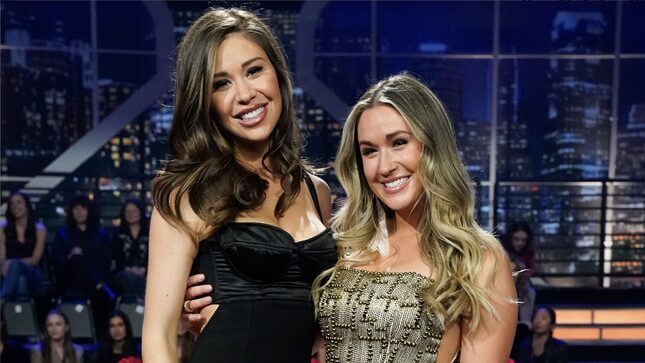‘The Bachelorette’ Is Trying to Sell Us Feminism
Can a reality dating show ever really be feminist, even with two women leads? Do we need it to be?
EntertainmentTV

Ahead of the premiere of The Bachelorette in May 2015, my colleague and I asked then-host Chris Harrison how the show would address concerns that in casting two leads at once, Kaitlyn Bristowe and Britt Nilsson, it planned to pit the two women against each other.
His response was… well, just read it: “I love that…some people are upset about it, ‘cause obviously we’ve hit a chord, and we’ve hit something personal in the people that are upset,” Harrison told us. “It’s probably an issue that you have with yourself or that you have with women. I think you’ll be very proud of how the women act tonight. So if you have an issue with it, that’s probably within you!”
As Harrison’s attitude pretty much predicted, Bachelorette fans proceeded to watch in horror as Bristowe and Nilsson were quite literally pitted against each other, forced to compete for the votes of 25 meathead suitors in order to advance another week and win the chance to date said meatheads on their own. “It was definitely unexpected, and I was shocked,” Bristowe, who ultimately prevailed and went on to be the lead of season 11, said of the experience at the time. “I wasn’t excited about it.”
Seven years later, the two-Bachelorette concept is getting a second life, as Rachel Recchia and Gabby Windey rise from the ashes of Clayton Echard’s absolute trainwreck of a season of The Bachelor. And franchise creator Mike Fleiss has assured skeptical fans that this time things will be different!
“See, no drama!” he tweeted on April 6, alongside a smiling photo of Recchia and Windey. “Just two friends helping each other find true love!”
-

-

-

-

-

-

-

-

-

-

-

-

-

-

-

-

-

-

-

-

-

-

-

-

-

-

-

-

-

-

-

-

-

-

-

-

-

-

-

-








































